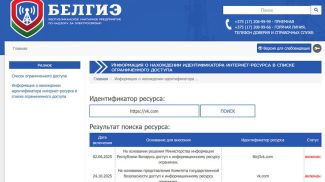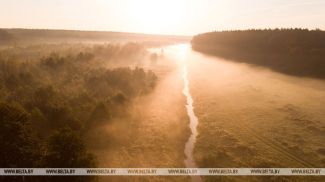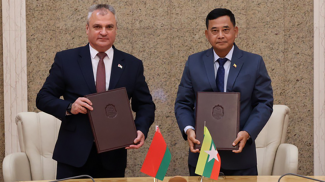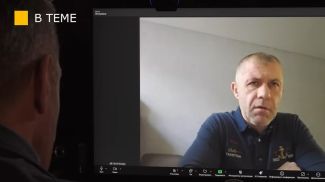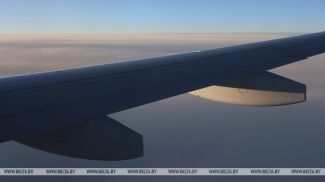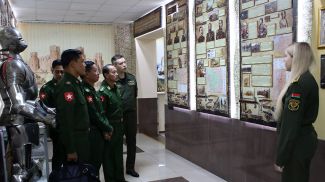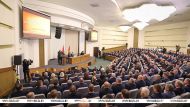MINSK, 12 November (BelTA) – Cold, makeshift huts and hope for help: the refugees stranded on the Polish border told BelTA about their situation.
A large group of refugees heading for the Belarusian-Polish border was spotted near the Bruzgi checkpoint on 8 November. Foreigners, mostly Iraqi Kurds, did not manage to get into Poland. They set up a camp on the borderline.
The morning of the fifth day in the camp seems calm. It looks like people are settling in. Makeshift huts from branches are popping up near tents. Laundry and children's stuff are drying on the barbed wire fence built by the Polish side. Adults are lining up for water at the barrel (water is brought to refugees regularly). Some men are bringing firewood to their fires: another batch of firewood was delivered to them by a truck.
Kids are playing tag and other games or building castles and roads on the ground. Many have their faces painted with a marker. The most common inscription is “I am cold”.
"It is very cold, especially at night. This is not easy for adults, let alone children," one of the refugees named Kaled said. He is 48 years old. He hails from the suburbs of Damascus. He said that things are hard at home. All his children live in the Netherlands. He is going there to reunite with his children and does not understand why he is not allowed.
"I don't want to go to Poland. I want to see my children," the man repeated and asked the journalists when the food would be brought. Deliveries of humanitarian aid are regular, but the refugees said that food is not yet enough.
A young Syrian also complained about the difficult conditions. He said that he already experienced the cruelty of the Polish security forces, but he is not giving up his attempts to reunite with his family in Germany. The man hopes for a speedy resolution of the crisis.
Different estimates put the number of refugees in the camp at over 3,000 people, including about 500 kids, some of them are babies. The number of people is increasing, another group of 150 people again tried to cross the border today. After an unsuccessful attempt, people headed to the camp. Most of the refugees are citizens of Iraq, ethnic Kurds, but there are representatives of other countries among them.




